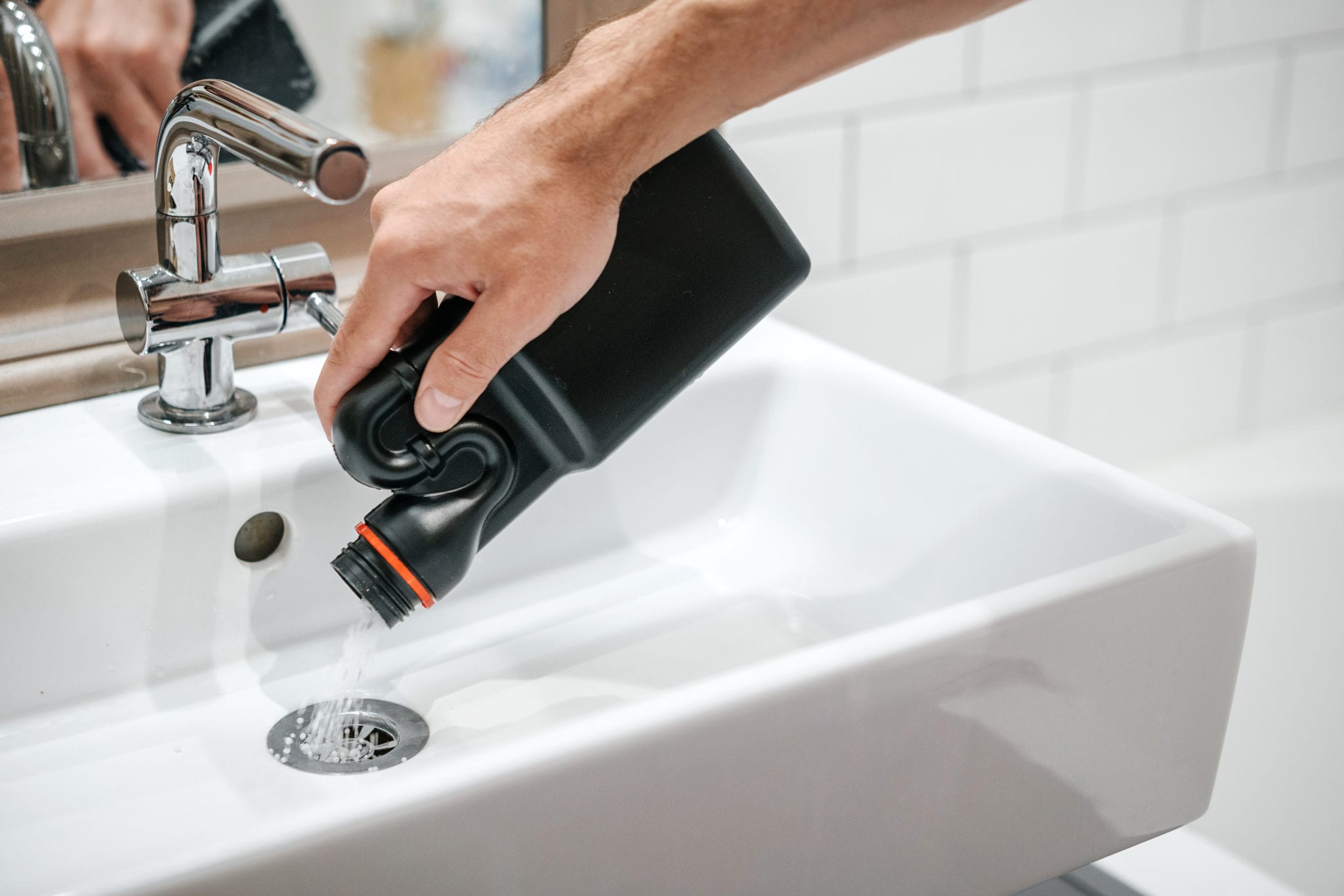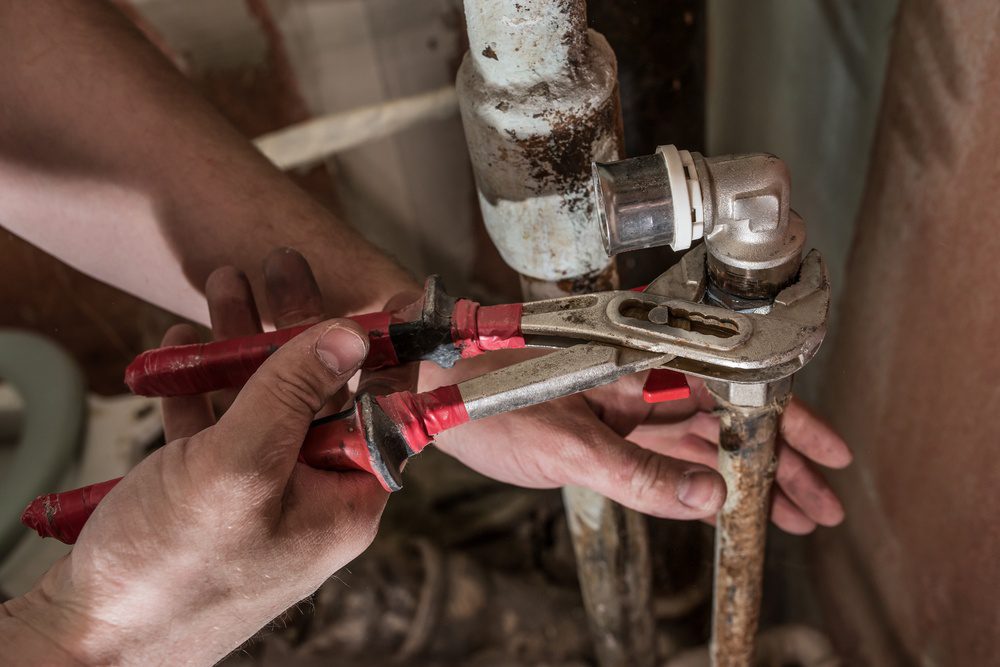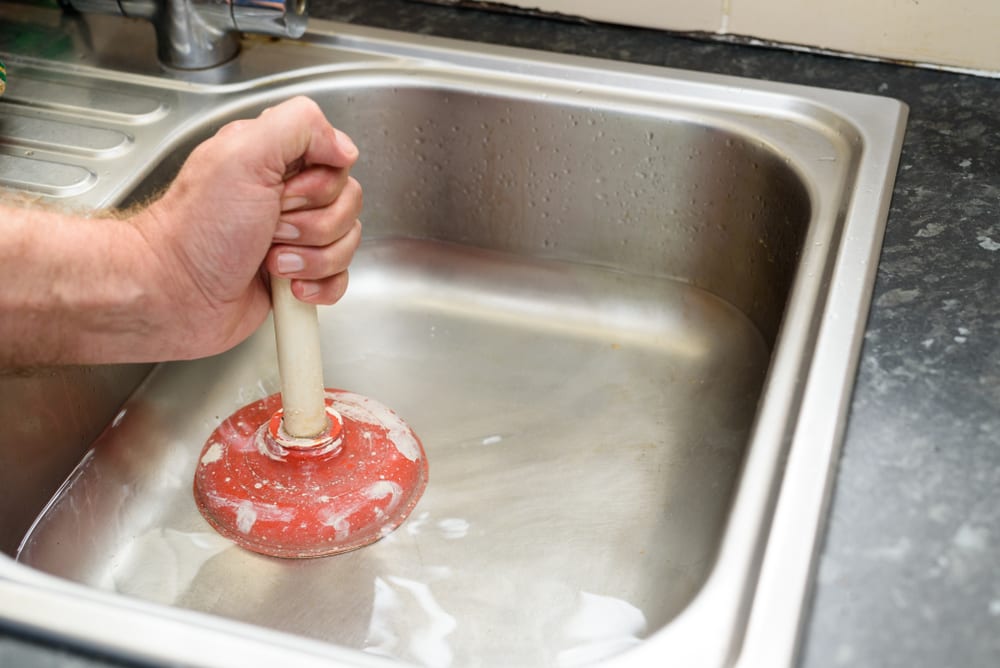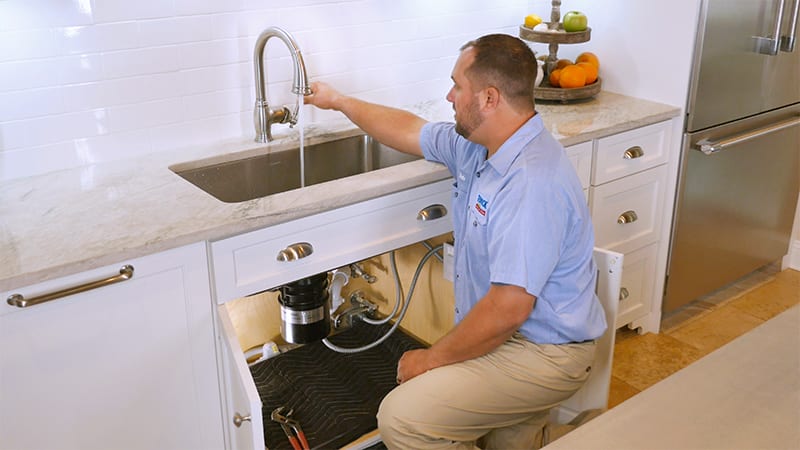
Are you constantly experiencing a backed-up shower or an overflowing toilet? If you’re sick of clogged drains, you’re probably tempted to use chemical drain cleaner yourself. However, these products pose serious safety hazards to your home and health.
Table of Contents
Why is chemical drain cleaner dangerous? Fenwick Home Services has all the answers. Below, we discuss how chemical cleaners work, why they’re dangerous, and accessible alternatives that help you avoid the cleaners altogether.
How Do Products Like Drano Work?
Chemical cleaning products use corrosive chemicals, such as:
- Lye, which breaks down organic matter during times of high heat
- Bleach, sodium nitrate, and salt, which all work together to produce gas and heat that effectively destroy most substances
- Aluminum, which reacts with the lye to create an exothermic reaction close to a boiling temperature
These mix together and produce chemical reactions that break down and flush the clog out of your pipes.
Knowing this, the next logical question is, “Is drain cleaner toxic?” Yes, drain cleaners are highly toxic, and even breathing in the chemical reaction can cause long-lasting health problems.

Why Is Drain Cleaner Dangerous?
Drain cleaner is dangerous because it poses a threat to you, your home, and the environment. You might think using it only once won’t hurt, but if enough people think that way, the chemical cleaners will cause a large-scale problem.
To Yourself
Most people neglect the most important safety advice when using drain cleaners: wear protective gear. In case it splashes while you pour, you should cover your skin and wear gloves and goggles. You should also wear a mask to avoid breathing in the fumes.
The high toxicity of the chemicals can cause burns on your skin and in your throat and lungs if you inhale the fumes, a condition known as drain cleaner poisoning. If that’s not enough to convince you, chemical drain cleaners also damage your wallet because they cost more than other solutions.
To Your Home
Is drain cleaner safe for pipes? Absolutely not. No matter what kind of pipes you have, they can’t stand up to the power of drain cleaners.
The chemical reactions can crystalize cast iron pipes and melt PVC pipes. It can even slowly corrode copper pipes. If the pipes develop even small leaks, they can end up damaging your foundation, too.
To the Environment
Is drain cleaner bad for the environment? Yes, it has a significantly negative environmental impact.
Chemical drain cleaners can contaminate the land around the pipes or the area in which they eventually end up. They can contaminate the local fungi, soil, and water, which in turn poisons any plants or animals that consume them.
Whether through contaminated water or outright exposure, the chemicals can burn or kill plants and animals.

Alternatives to Chemical Drain Cleaner
Chemical drain cleaners claim they’re a fast and easy solution, but they’re never worth the risk. Fortunately, you can use several alternatives to chemical drain cleaners to clear your pipes.
Try Bio Drain Cleaners
Bio drain cleaners are safe for humans, pets, and your home. You can easily get them from most home improvement stores. They work by utilizing bacteria that can dissolve organic material, such as soap scum, hair, and food byproducts, without harming your pipes.
After the bacteria break down the clog, it easily flushes from the pipe. You can use bio drain cleaners as frequently as you need, and they work best when you use them overnight. For more consistent maintenance, pour some down your drain once a month, even if you’re not experiencing any problems.
Try Boiling Water
For minor clogs, boiling water often breaks down the organic substances enough to dislodge them. For example, while grease solidifies at colder temperatures, sending boiling water through it can melt it and flush it the rest of the way out of your pipes.
Not every clog responds to boiling water, but it’s a good place to start.
Try a Plunger or Drain Snake
If you have a clogged toilet, a plunger is the best solution for dislodging it. Confirm you’re using a toilet plunger (the one with ridges) rather than a sink plunger (shaped like a small bell).
If the clog is close to the surface, you can also try to break it apart or grab it with a drain snake. While plumbers use a more powerful version of a snake, you can find basic ones at any hardware store.
Calling a Professional
Calling a professional plumber is always a good option. If you’ve tried unsuccessfully to remove the clog, a professional plumber brings the required tools and experience to remove even the most stubborn blockages.
However, sometimes calling a professional is better than trying to remove the clog yourself. Consider how much you value your time and how much effort you’ll put into clearing the drain and cleaning up any potential mess you cause.

Contact the Experts When You Have a Drain Clog
Now that you know the dangers of chemical drain cleaners, you can avoid the temptation to use them in your own drains. If you have a stubborn clog, don’t get discouraged. Fenwick Home Services is here to help.
We bring a wealth of knowledge and training to every job, and with our competitive prices and exceptional professionalism, you’ll feel satisfied with how we solve your issues. We’re also available for 24/7 emergency plumbing problems and can even fix your sump pump.
To book an appointment, call 904-780-9832 today.

